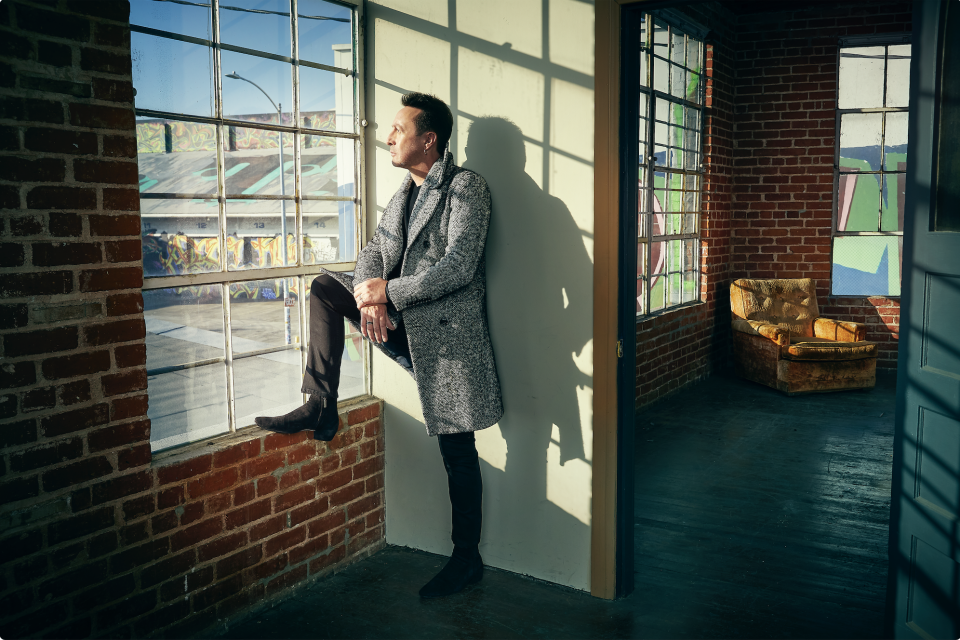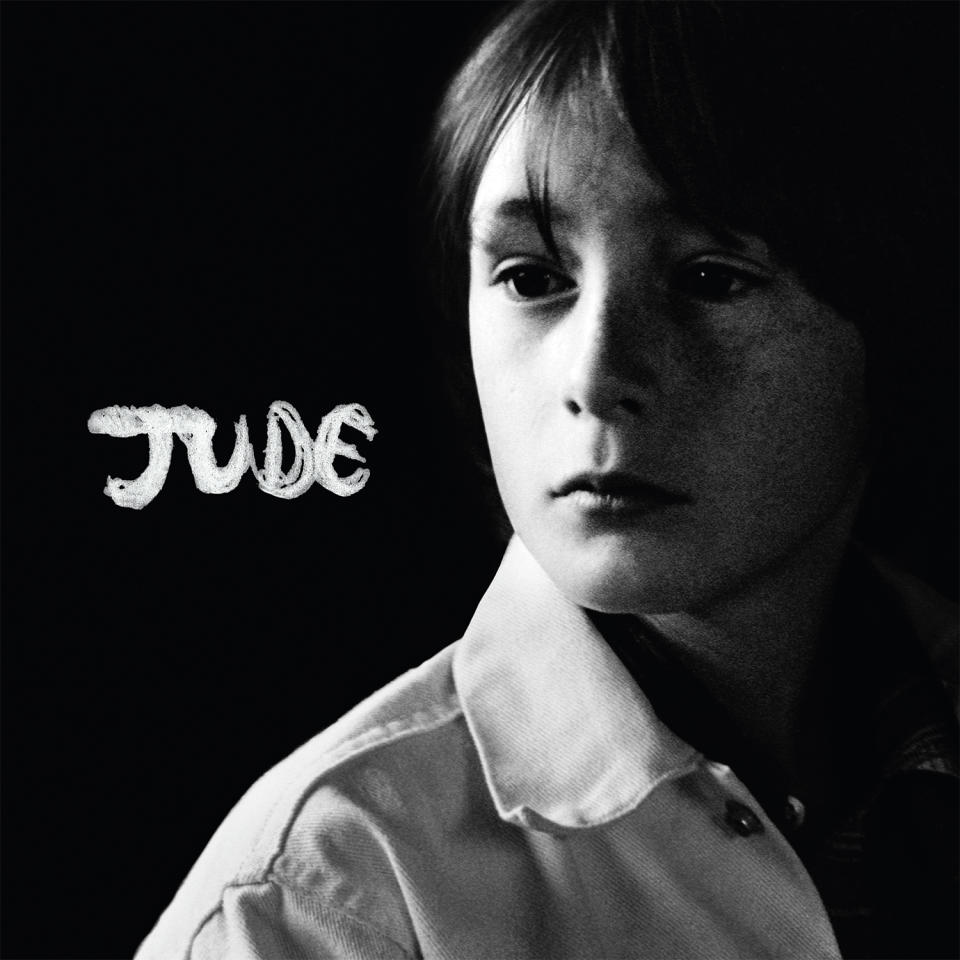Julian Lennon Steps Out From the Shadows for New Album
- Oops!Something went wrong.Please try again later.
- Oops!Something went wrong.Please try again later.
- Oops!Something went wrong.Please try again later.

Julian Lennon would prefer not to be in the limelight.
It’s an interesting choice for someone who has been famous since before he was even born. But the son of Beatle John Lennon and his first wife Cynthia has overcome that reluctance to carve out his own musical path, while also using his fame to deliver a message about respecting indigenous people around the world and championing environmental causes.
More from WWD
While philanthropy may be his passion, Lennon, who has an innate talent for music, will release his latest album, “Jude,” on Sept. 9. The album is named after the legendary song, “Hey Jude,” that was written for him by Paul McCartney to comfort the five-year-old after his father met Yoko Ono and separated from his mother. The song, which topped the charts for 19 weeks after its release in 1968, was originally named “Hey Jules” — Julian Lennon’s nickname — but was changed because McCartney thought Jude worked better for the song.
“Jude” is the first album Lennon has put out in 11 years, a hiatus he created intentionally because it allowed him the opportunity to embrace other projects.
“I’ve always had relatively large breaks between albums, especially since I’ve been an independent artist,” he said in an interview from his home in Monaco. “I think part of the reason is because the work is meaningful for me. It’s my heart and soul being heard.”
Lennon is surprisingly warm, open and engaging, and eager to share the passion he feels about his work and his music — all in his charming English accent.
”Back in the early days, in my 20s,” the 59-year-old said, “you were pushed into the studio the moment you came off world tours. So it was this endless cycle. And after 30 years of doing that, I said, that’s not what I want to do anymore. So I became independent, and it allowed me to follow all of my other dreams.”

ROBERT ASCROFT for FourEleven.Agency / @ROBERTASCROFT @FOURELEVEN.AGENCY /Courtesy Photo
Those dreams included the creation of the White Feather Foundation. As the story goes, John Lennon had told him that should he die, he would use a white feather to let his son know he was at peace. So when Julian Lennon was on tour in Australia, he received a white feather from two elders of the Mirning tribe asking him to help tell their story. He took it as a sign and went on to produce a documentary called “Whaledreamers” and founded the White Feather Foundation in 2007 to shine a light on a range of environmental and humanitarian issues.
Since then, Lennon has established the Cynthia Lennon Scholarship for Girls in Kenya, and now the U.S., was honored with the CC Forum Philanthropy Award in Monaco, was named a UNESCO Center for Peace 2020 Cross-Cultural and Peace Crafter Award Laureate, has authored several books including the trilogy “Touch the Earth,” “Heal the Earth” and “Love the Earth,” and the children’s graphic novel “The Morning Tribe.” And his documentary, “Kiss the Ground,” about soil regeneration, aired on Netflix in late 2020.
His environmental message carries through to his music. He cowrote and recorded a song about the environment and poverty called “Saltwater” in 1991, and rereleased it in 2016.
“Since then I’ve written about five songs about the same kind of issues and it’s just sickening that nothing has really changed. Although I do see strong movement now.”
Despite his other work, Lennon said he’s never lost his love for music.
“Even between albums, I was working on other projects with different people and writing and singing,” he said, “just not in front of the camera — not in the limelight. The limelight is not particularly where I like to be. I’d rather be behind the camera any day. That’s my happy place, where I can breathe and not feel like a performing monkey.”

He referred to “Jude” as a “coming-of-age album,” one that finally allows him to be himself. The cover shows a black-and-white photo of him in 1973, a few years after his parents divorced in 1968. So far, he’s released two singles from the album, “Breathe,” which is about finding peace and balance in a time of emotional upheaval, and “Save Me,” which speaks to not running away and hiding from life. Both songs are highly personal and part of his quest to carve out his own identity as more than just John Lennon’s son.
“My legal name was John Charles Julian Lennon,” he said. “So whenever I traveled, or had to go through security, it could go either way: it could be pleasant or I would get smarmy comments. I never enjoyed that because I just wanted to get on with my life as me, Julian. So in 2020, I changed my name. But I wanted to respect my mum, Cynthia, and my dad, so I switched Julian and John round. So the first thing anybody reads on a boarding pass today is Julian.”
Lennon has that same complicated relationship with the Beatles music. Although he swore he’d never do it, he was convinced to cover his father’s anthem, “Imagine,” earlier this year as part of a fundraiser for Ukraine.
“I had no ambition to sing any of dad’s or Beatles songs,” he said. “But I’m so disturbed by what’s going on in our world right now that I thought, this is as good a time as any in history.”
The decision caused him waves of anxiety — “I really went into panic mode” — but the result was a “raw, honest and truthful” rendition accompanied by only an acoustic guitar. And it was a smash hit, helping to raise billions of euros for the cause.
“I was blown away by the response,” he said. “It’s changed my life for the better. I never thought that would be the case.”
Despite the song’s success, Lennon never thought about adding it to his new album. “I consider it a separate entity. It took me almost 60 years to sing that song and it was a onetime occasion. It’ll never happen again.”
So it’s no surprise that Lennon didn’t record a version of “Hey Jude” for his new album, either.
“Because I did ‘Imagine’ does not mean that I’m now doing the Beatles back catalogue, or dad’s work. I’m just moving on with my own life again, as I have been all this time anyway.”
And the 11 songs on “Jude” all tell stories about different subjects that matter to Lennon. He said, “they’re all my babies,” when asked for a favorite, adding, “they all tackle different subject matters and are conversations with myself. They all deal with the world around us, the war in our daily lives and the war within, where we try to understand ourselves, take on the challenges that we are faced with and do the right thing. All I’ve ever wanted, really, was to make my mother proud, and I feel I have this purpose.”
FOR MORE FROM WWD.COM, SEE:
Robbie Williams Talks Upcoming Tour at Giambattista Valli
Getting to Know ‘Obi-Wan Kenobi’ Star Moses Ingram
Sydney Chandler Is Ready to Rock
Best of WWD
Sign up for WWD's Newsletter. For the latest news, follow us on Twitter, Facebook, and Instagram.

